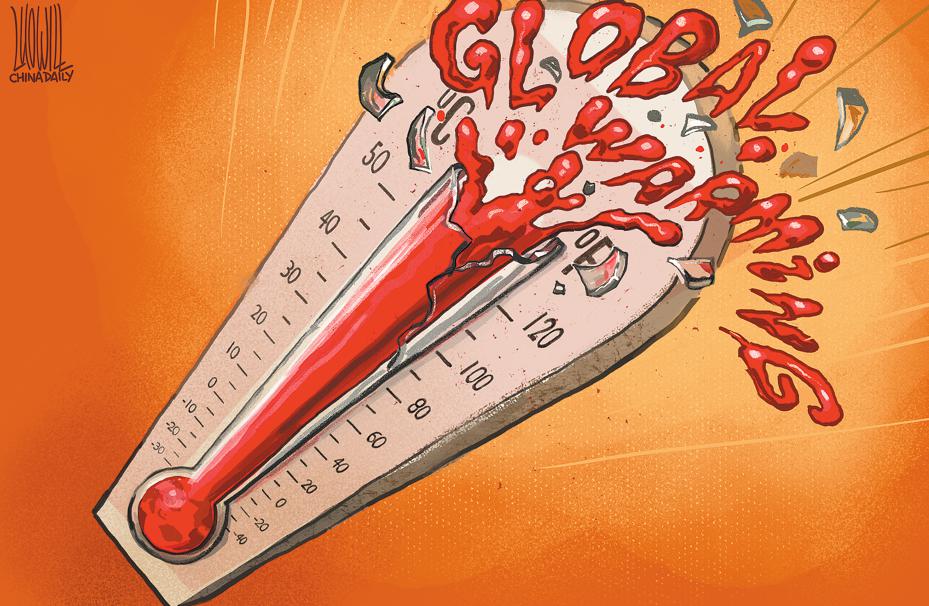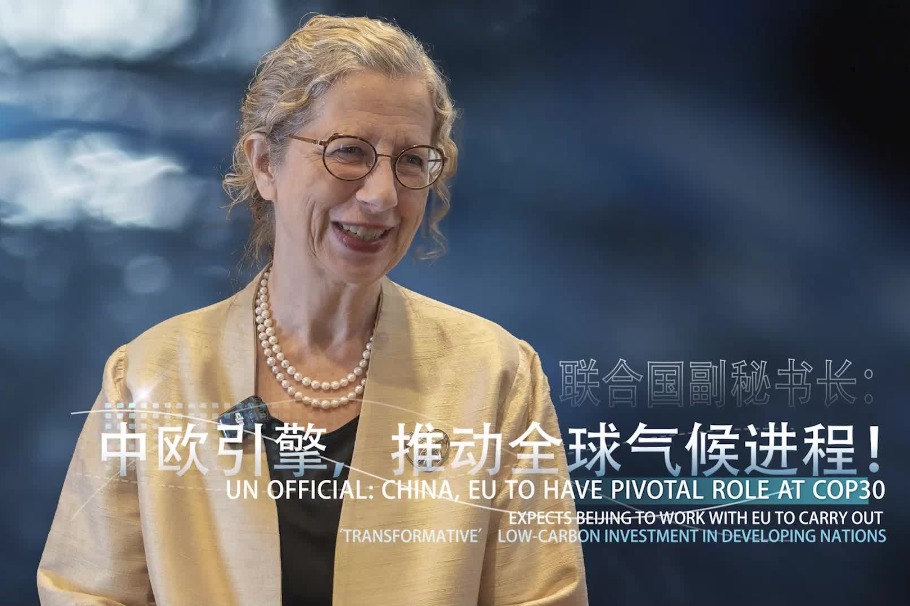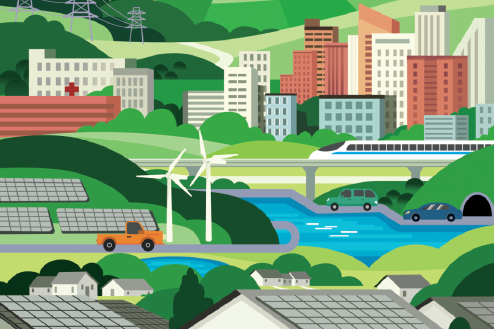Developed world should do more to bring Earth's temperature down


We are witnessing history again. This July might be the hottest single month on Earth on record and possibly in more than 100,000 years. "We are hurtling towards disaster; it is time to wake up and step up", the United Nations chief António Guterres said, calling for immediate global action to avert climate "catastrophe".
Global warming is now an indisputable fact. Human beings have lived on the planet for a long time, yet the climate problem seems to have taken a sharp turn for the worse just in the centuries closest to our day. However, the long-standing failure of developed countries to shoulder their responsibilities and the delay in fulfilling their commitments have led to the slow progress of the current climate agenda, raising growing concerns in the international community.
Developed countries bear historical, legal, and moral responsibility for climate change, while developing countries are the greatest victims. As Brazilian President Lula said at "Power Our Planet", "who polluted the planet in these last 200 years were those who made the industrial revolution". According to the Center for Global Development, the historical concentration of industry and wealth in developed countries means that they are responsible for 79 percent of the emissions from 1850 to 2011. The United Nations Framework Convention on Climate Change clearly stipulates that, as developed countries are the source of most past and current greenhouse gas emissions, industrialized countries are expected to do the most to cut emissions on home ground. Meanwhile, developed countries should agree under the Convention to support climate change activities in developing countries by providing financial support.
However, developed countries just keep chanting slogans while trying to shift responsibilities and obligations to developing countries. It runs counter to the principle of common but differentiated responsibilities, which is explicitly stated in the United Nations Framework Convention on Climate Change and the Paris Agreement. Recent research led by the University of Leeds shows that almost 90 percent of excess carbon emissions come from developed countries such as the United States, who could be liable to pay $170 trillion in climate reparations to low-emitting countries to ensure targets to curtail climate breakdown are met.
Climate change is a global challenge that calls for a global response. In recent years, there has been a regression in the climate policies of some developed countries, and fossil energy consumption and carbon emissions have increased rather than decreased, affecting the global climate governance process.
The United States, frequently criticizing others for not being "transparent" or "accountable", lacks a coherent, consistent, or accountable policy to address climate change. Unwilling to ratify the Kyoto Protocol and the Convention on Biological Diversity, withdrawing from the Paris Agreement for a time, and blocking consensus on climate issues at the G20 ... the United States has become a spoiler in global climate governance. Furthermore, the United States plans to invest hundreds of billions of dollars to revitalize the manufacturing sector through unfair bills and administrative initiatives under the pretext of promoting the domestic energy transition. Meanwhile, it has erected various trade barriers against green industries in other countries, cutting off developing countries' access to green technologies.
Such acts have overtly violated WTO rules and disrupted the global green industrial chain and supply chain. They have also undermined the efforts of countries to achieve the sustainable development goals and created setbacks for the process of international cooperation on important environmental protection issues, such as climate change and biodiversity conservation.
Warm and cold we share together; combating climate change is a common cause for mankind. Instead of using the issue of climate change as a political bargaining chip and dealing with it in a selective manner, developed countries should face up to their historical responsibilities and fulfill commitments as soon as possible. While climate change cooperation is tough, it is the common but differentiated responsibilities of mankind that are the cornerstone of global climate change governance. In the face of the truly global problem of climate change, countries have no choice but to cooperate.
The author is a commentator on internationals affairs, writing regularly for Xinhua News, Global Times, China Daily, CGTN etc. He can be reached at xinping604@gmail.com. The views don't necessarily reflect those of China Daily.
If you have a specific expertise, or would like to share your thought about our stories, then send us your writings at opinion@chinadaily.com.cn, and comment@chinadaily.com.cn.

































